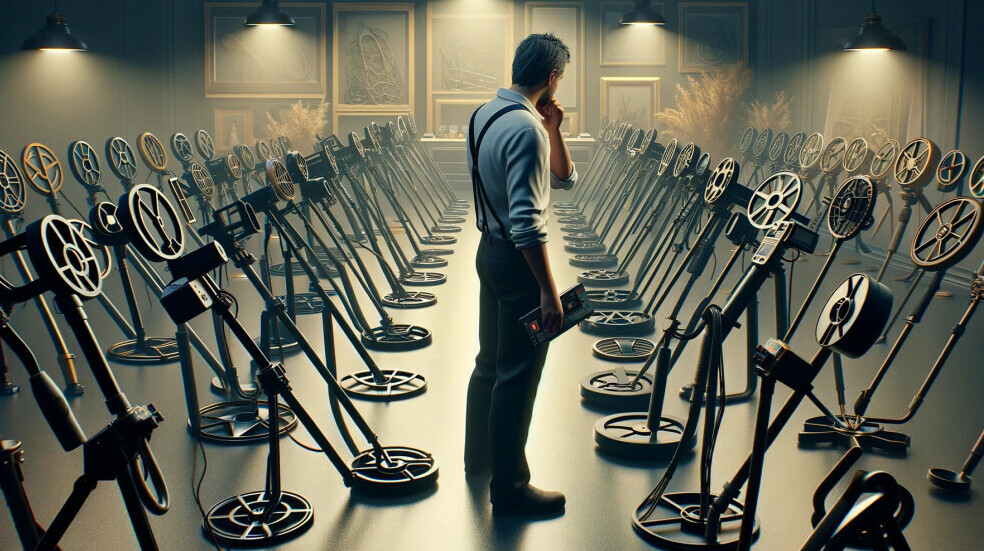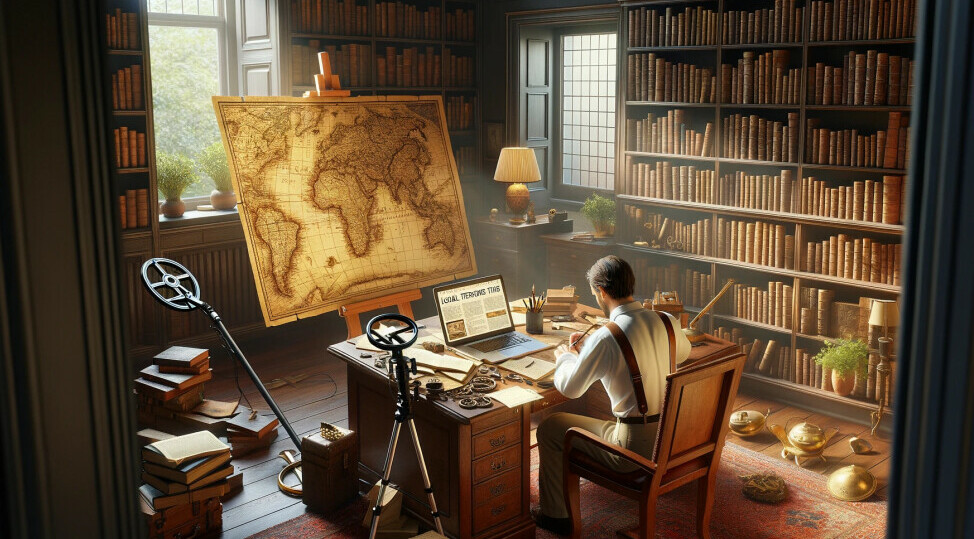
Imagine unearthing a piece of history with your own hands. That’s the allure of treasure hunting, a pastime that combines the excitement of discovery with the great outdoors. You’ll find out what draws individuals from all walks of life to this hobby and what it entails.
Treasure hunting isn’t just about striking it rich; it’s also about the joy of the hunt, the connection with history, and the physical and mental challenge. Enthusiasts range from casual beachcombers to dedicated historians searching for specific artifacts. Every find, be it a decades-old coin or remnants of an ancient civilization, tells a story.
In my opinion, the appeal of treasure hunting is timeless, but it’s also an activity grounded in patience and the understanding that not every trip will yield treasures. It’s a pursuit that promises sporadic rewards but a consistent adventure.
So, if you’ve ever wondered if treasure hunting could be your next great hobby, you’re in the right place. I’m here to help you unravel the mysteries of the earth. As you absorb the ins and outs of this exciting pursuit, you’ll soon be equipped to transition seamlessly into the world of metal detecting, which is often at the core of modern treasure searches.
Understanding Metal Detecting
Metal detecting isn’t just walking around and waiting for the beep. It’s a craft that combines history, geology, and electronics knowledge. When you’re swinging your detector, you’re part detective, part archaeologist.
You’re going to find out about all sorts of treasures. Coins that tell the tales of commerce long before our time, relics that were once part of someone’s daily life, or perhaps jewelry that has been lost and is waiting to be found. Expect a variety of finds, from modern leftovers to historic artifacts that may have seen centuries pass by.
In my opinion, the real treasure of metal detecting comes from the stories behind these finds and the excitement of uncovering a piece of history.
But remember, metal detecting isn’t an instant jackpot. It requires a good dose of patience and persistence. Many hours might yield little more than bottle caps and nails. Yet, that one rare coin or ring makes it all worthwhile. For many enthusiasts, the chase is as thrilling as the find.
Choosing Your Treasure Hunting Equipment
Now, I will help you navigate the array of metal detectors out there. Choosing a detector that aligns with what you’re hoping to find and where you plan to search is critical.
Let’s break it down. There are typically three types of metal detectors:
- Very Low Frequency (VLF) Detectors:
-
- Advantages: They’re like the reliable friend who’s good at many things. Great for general use, VLF detectors can differentiate between metal types, making them fantastic for treasure hunting where you need to sift through trash to find the good stuff.
- Disadvantages: However, they might struggle a bit in highly mineralized soil, where they can get a bit confused and less effective.
- Pulse Induction (PI) Detectors:
-
- Advantages: These are the powerhouses, perfect for challenging environments. Think of them as the friend who thrives in tough situations. They excel in areas with high mineralization (like gold fields) and can go deeper than VLF detectors.
- Disadvantages: The downside? They’re not as good at telling you what type of metal you’ve found, so there might be more digging up old nails than treasure.
- Multi-Frequency Detectors:
excited -
- Advantages: These detectors are the most versatile ones in the group. They can adapt to various conditions, combining the strengths of both VLF and PI technologies. It’s like having a friend who’s good at everything and can adjust their approach depending on what’s needed.
- Disadvantages: The catch? They can be pricier due to their advanced capabilities and versatility, but for many, the investment is worth it for the adaptability they offer.
So, there you have it—a little peek into the metal detecting world, where each type of detector has its own unique strengths and weaknesses,
But metal detecting isn’t just about the main device. You’ll want some other gear to make your treasure hunting productive and enjoyable. A digging tool is a must—something sturdy enough to break through tough soil but precise enough to not damage your finds.
Investing in a pinpointer will save you time, honing in on an object once you’ve dug up some dirt. Also, a finds pouch or container for safe transport of your treasures is essential. Don’t forget a good pair of gloves to protect your hands!
Several factors should drive your choice: the detector’s sensitivity, its discrimination features, which help you ignore unwanted metals, the weight—since you’ll be carrying it around—and, of course, your budget.
Headphones can help you hear fainter signals and are invaluable in noisy environments. And I cannot stress enough the importance of a good pair of headphones, especially if you’re searching in busy or windy locations.
I’d also recommend that you look at waterproof features if you’ll be hunting near water bodies or in wet conditions. After all, you never know where you might find treasure.
Finally, remember that the most expensive detector isn’t always the best one for you. Choose something that resonates with you and your treasure hunting aspirations.
Starting Your Treasure Hunting Journey

You’re probably excited to start sweeping your detector over the ground, anticipating the signals of hidden treasures below. But before you begin, let’s talk strategy. Remember, it’s about more than just luck; successful treasure hunting is rooted in good research.
Like a detective hot on a case, you will want to pore over old maps, visit local libraries, and chat with historians. This isn’t just about finding a spot; it’s diving into the story of a place. And don’t forget to brush up on your area’s treasure trove laws—that’s a must.
Respect for the past and environment is key in the field. This means you will fill any holes you dig and properly dispose of any trash you find. After all, treasure hunting is more about preserving history than discovering it.
You may want to connect with others who share your passion. So, consider joining a metal-detecting club or online forum. These communities can be gold mines of information (pun intended), offering tips, sharing finds, and sometimes, organizing group hunts.
As you embark on your treasure-hunting adventures, don’t focus too much on the ‘big find.’ The real treasure is often the journey, the stories behind the objects you uncover, and the fresh air and exercise you’ll get along the way.
Treasure hunting is an amazing way to learn about history, get outdoors, and maybe find something incredible. It can be a solitary pursuit or a shared quest, but one thing’s certain – every find, big or small, is part of a greater narrative.
So go on, choose your starting point, make sure you’re well-informed and equipped, and take the first step into a world of discovery. Always remember, treasure hunting is about the thrill of the hunt, the mystery, and the unexpected joy of uncovering something that’s been lost to time.
Leave a Reply